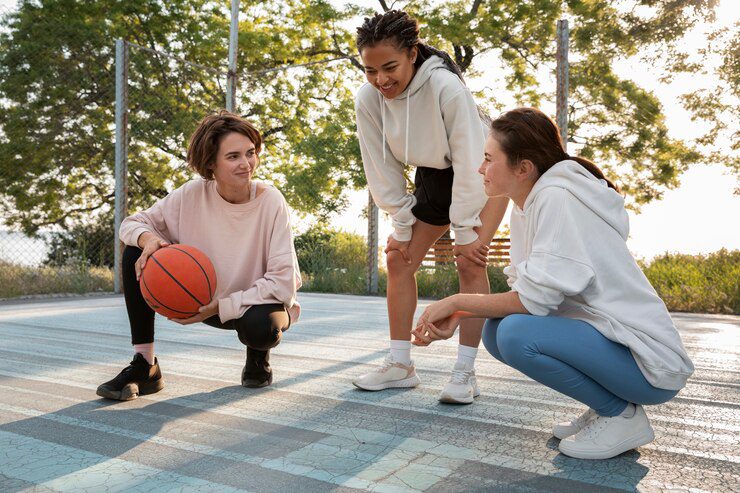Youth sports are more than just games; they are the crucible where champions are made. Youth sports development is about nurturing raw talent, instilling discipline, and fostering a lifelong love for physical activity. It’s the foundation upon which future athletic greatness is built.
The Power of Early Exposure
The earlier kids start engaging in sports, the better their chances of developing exceptional skills. Youth sports development programs are designed to introduce children to a variety of sports, allowing them to explore their interests and discover their passions. It’s like planting seeds in a fertile garden, where with proper care, they can blossom into extraordinary athletes.
Table: Benefits of Youth Sports Development
| Benefit | Description |
| Physical Health | Improves fitness, strength, and coordination |
| Mental Health | Boosts self-esteem, reduces stress, enhances focus |
| Social Skills | Develops teamwork, leadership, and communication |
| Character Building | Instills discipline, perseverance, and sportsmanship |
Identifying and Nurturing Talent
Discovering young athletes with exceptional potential is the first step in youth sports development. Talent identification programs, coupled with advanced performance analysis, are crucial for spotting the next generation of stars. Once identified, these young athletes need access to world-class coaching, specialized training facilities, and opportunities to compete at the highest levels.
The Role of Technology
Technology is revolutionizing youth sports development. Wearable devices, performance analytics, and virtual reality are transforming training methods. Athletes can now track their performance, identify areas for improvement, and visualize success. It’s like having a personal coach and data analyst in your pocket.
The Role of Organized Sports
While free play is essential, organized youth sports programs offer structured training and competitive opportunities. These programs provide young athletes with expert coaching, opportunities to learn teamwork, and the chance to compete against others. It’s like joining a sports academy where skills are honed, and friendships are forged.
The Importance of Inclusivity
Creating an inclusive environment is crucial for the success of any youth sports program. All children, regardless of their abilities or backgrounds, deserve the opportunity to participate. Making sports accessible to everyone fosters a sense of belonging and empowers young athletes to reach their full potential.
Beyond the Scoreboard: Life Skills Development
While winning is undoubtedly important, youth sports development is about more than just trophies. It’s about teaching kids the values of teamwork, respect, and fair play. These life skills, honed in the sports field, translate into success in all areas of life.
The Role of Parents and Coaches
Parents and coaches play a pivotal role in youth sports development. Creating a positive and supportive environment is crucial. It’s essential to focus on effort, improvement, and enjoyment rather than solely on winning. Let’s ditch the “win at all costs” mentality and prioritize the overall development of young athletes.
Challenges and Opportunities
The path to athletic excellence is not without its hurdles. Issues such as specialization too early, burnout, and access to quality coaching can hinder youth sports development. However, with a focus on holistic development and a commitment to creating inclusive programs, these challenges can be overcome.
Opportunities abound in the world of youth sports techniques and development. Technology is playing an increasingly important role, with data analytics and wearable devices providing valuable insights into athlete performance. Additionally, the rise of e-sports offers new avenues for young people to engage in competitive gaming while developing valuable skills.
The Future of Youth Sports
The future of youth sports development is bright. As society places a greater emphasis on health and wellness, the demand for quality youth sports programs will continue to grow. By investing in the next generation of athletes, we are not only nurturing sporting talent but also building a healthier, more active, and more engaged society.
So, let’s rally behind our young athletes and create an environment where they can thrive. It’s time to level up the game and shape a brighter future for youth sports development.







